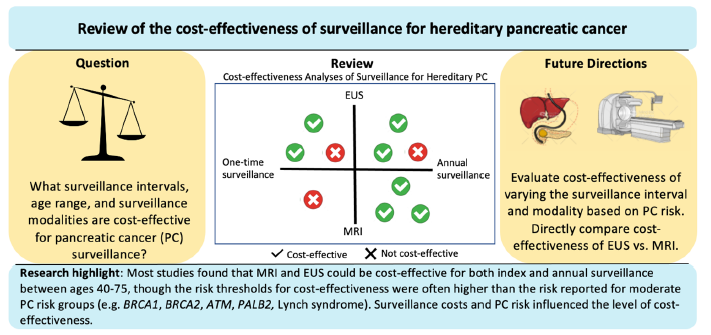Home
Welcome to the Katona Lab
Our lab and research program is an exciting, highly collaborative, and interdisciplinary program focused on gastrointestinal cancer and hereditary gastrointestinal cancer predisposition syndromes. Ongoing research activities in this area span the spectrum of basic science, translation studies, and clinical studies, and involve active collaborations across the Perelman School of Medicine, Abramson Cancer Center, and the University of Pennsylvania. Active research projects in our group, as detailed on the Research page, include understanding the biology of colorectal tumorigenesis through the use of mouse models and human-derived organoids, studying the role of the immune system in Lynch syndrome pathogenesis, implementation of early detection of pancreatic cancer in individuals at high-risk, investigating the role of the microbiome in colonic polyposis, and characterizing genetic susceptibility for gastric cancer.
The Katona Lab is looking for motivated graduate students and post-docs. See the Positions page for more details.
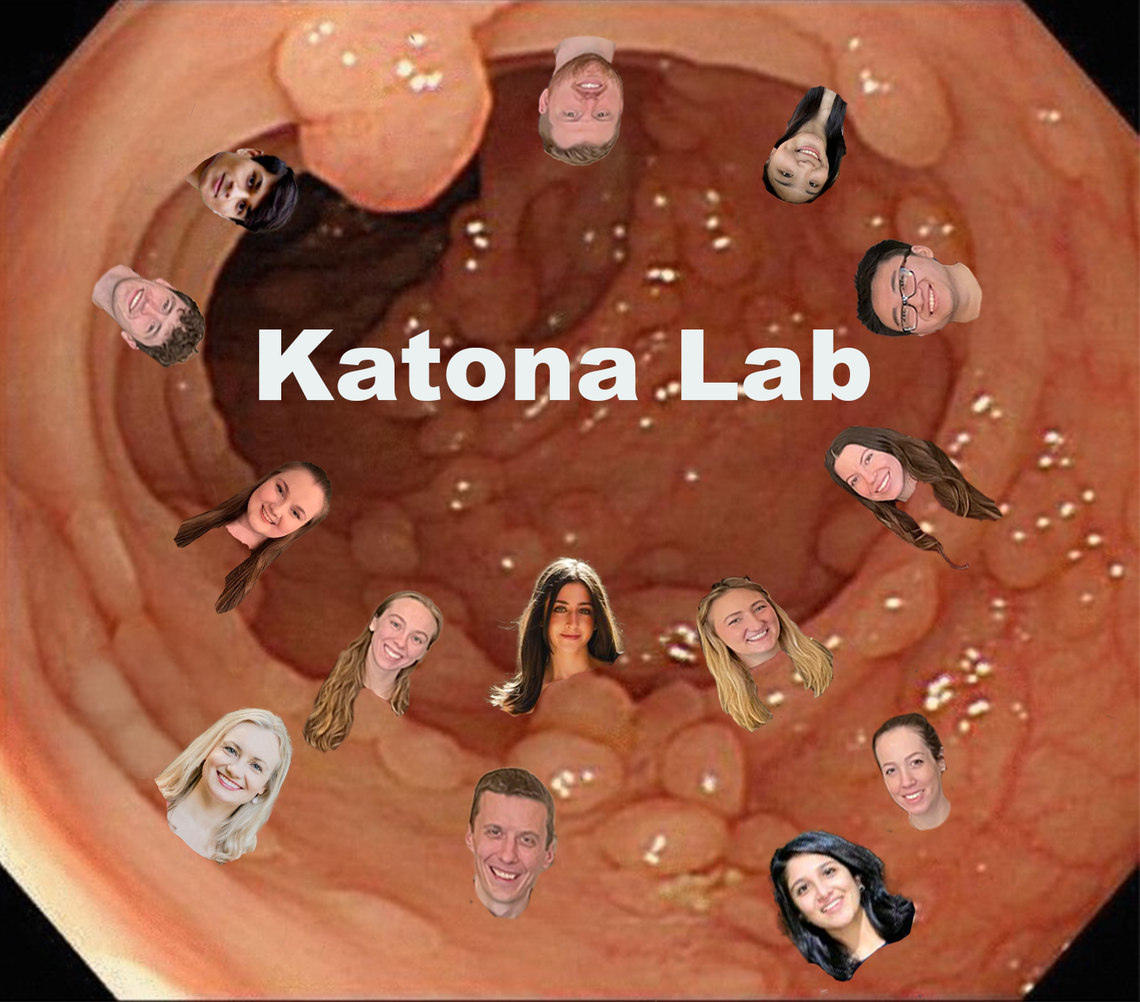
Recent News
January 2025
Welcome to Bhoomi Madhu who joined our group as a postdoc. Bhoomi will be working on the role of beta-hydroxybutyrate (BHB) administration as a potential chemoprevention strategy in Lynch syndrome. Additionally, welcome to Rohan Gala, an undergraduate student at Penn, who joined our group and will be working on laboratory projects focused on Lynch syndrome.
December 2024
Welcome to Samantha "Sammy" Kasselman and Lauren Cuff, both Master's in Genetic Counseling graduate students, who joined our group to conduct their thesis research. Sammy will be focused on the prevalence and stability of pancreatic lesions on imaging in individuals at high-risk for pancreatic cancer. Lauren will be focusing on knowledge about CMMRD amongst individuals with Lynch syndrome.
New work from our group, just published in Cancer, determines pancreatic cancer risk among women with a BRCA1 or BRCA2 mutation in the largest prospectively followed cohort to date. This work will provide important data to the field that will enable BRCA1/2 carriers to make informed decisions about their screening.
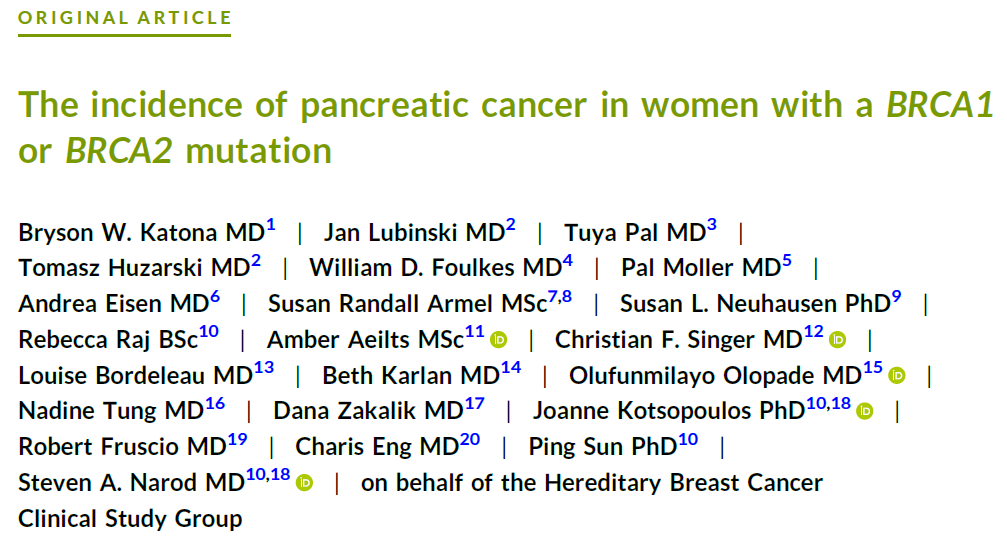
November 2024
Congratulations to Danielle (Daniela) Mirda, who published an incredibly important manuscript on the colonic neoplasia detection rate in Lynch syndrome. This work will be important for providing "ballpark" neoplasia detection rates to clinicians performing endoscopic surveillance in Lynch syndrome.
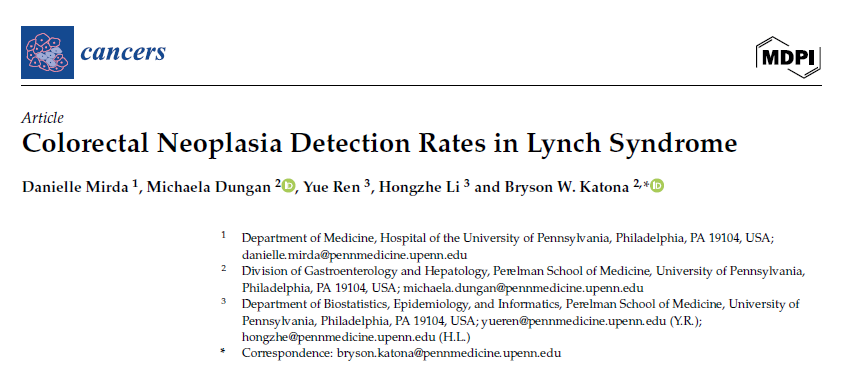
September 2024
Congratulations to Ariana Majer on publishing the most comprehensive review-to-date about the rapidly expanding role of menin in cancer. This review is a true tour de force, and is a must-read for anyone wanting to learn more about this field.
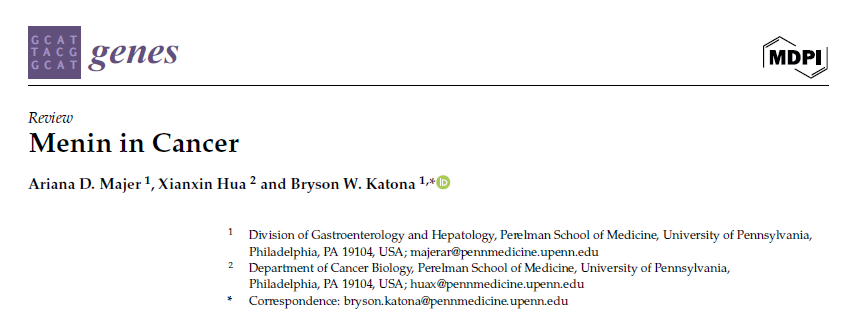
August 2024
We were thrilled to be able to contribute to this special curated collection of manuscripts in Familial Cancer focused on hereditary pancreatic ductal adenocarcinoma. This is the first review ever to address the important topic of cost-effectiveness of pancreatic cancer surveillance in high-risk individuals.
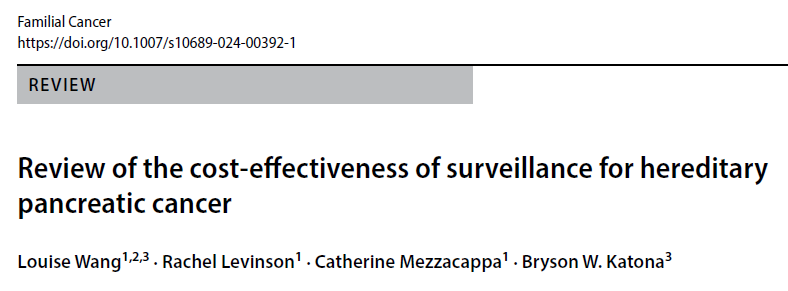
June 2024
Welcome to Linda Zhu, an undergraduate student at Penn, who joined our group and will be working on laboratory projects focused on hereditary gastric cancer risk. Excitingly Linda was awarded a spot in Penn's Undergraduate Student Scholars (USSP) Program for the summer of 2024!
May 2024
Our group was well represented at DDW in Washington DC where we had three abstracts presented, including an oral presentation by Daniela Mirda, who presented on colonic neoplasia detection rates in Lynch syndrome. Daniela was able to present in the hereditary GI cancer abstract session that Bryson was able to moderate with Fay Kastrinos.
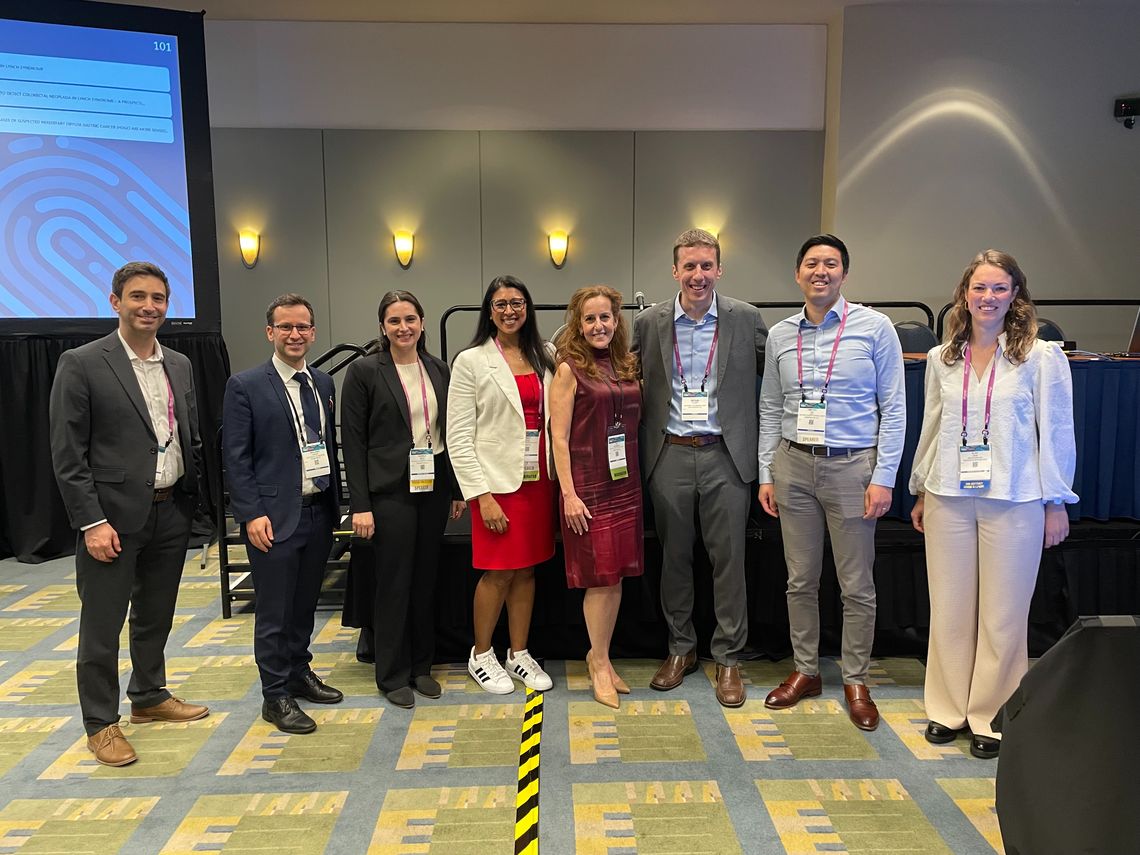
April 2024
Welcome to Sara Karley who joined our group as a Clinical Research Coordinator A. Sarah will be working on clinical studies focused on pancreatic cancer early detection.
January 2024
Welcome to Grace Snyder, a Master's in Genetic Counseling graduate student, who joined our group and will be examining reasons for pancreatic surveillance discontinuation amongst individuals at high risk of pancreatic cancer.
November 2023
Welcome to Kevin Dinh who joined the lab as a Research Specialist A. Kevin will be working on projects focused on hereditary gastric cancer,
October 2023
Penn was well represented at this year's CGA-IGC meeting where we had the opportunity to present data from two recent papers, including one that was simultaneously published in JCO Precision Oncology.
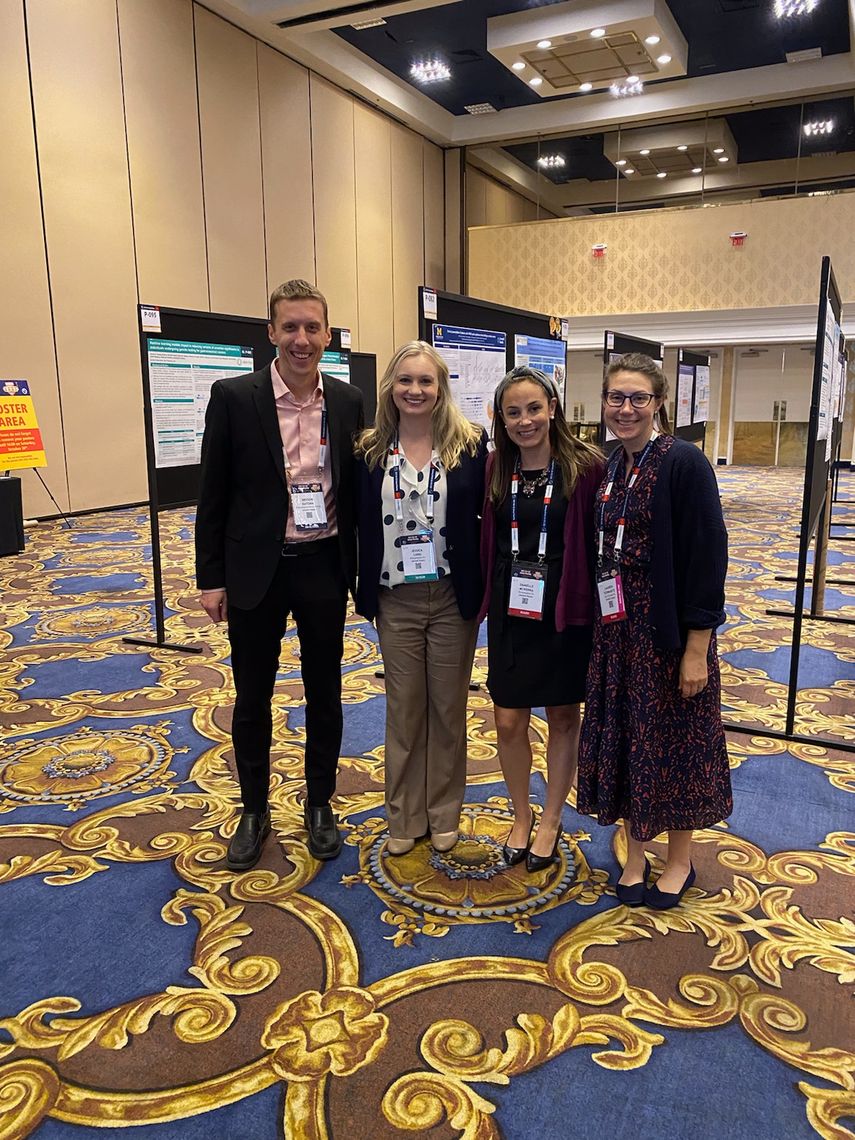
August 2023
Congrats to Thomas Nyul and Keely Beyries, along with so many others in the lab and our close collaborators, on their recent publication in Cancers showing how menin is important for maintaining cholesterol homeostasis in colorectal cancer through repression of LXR.
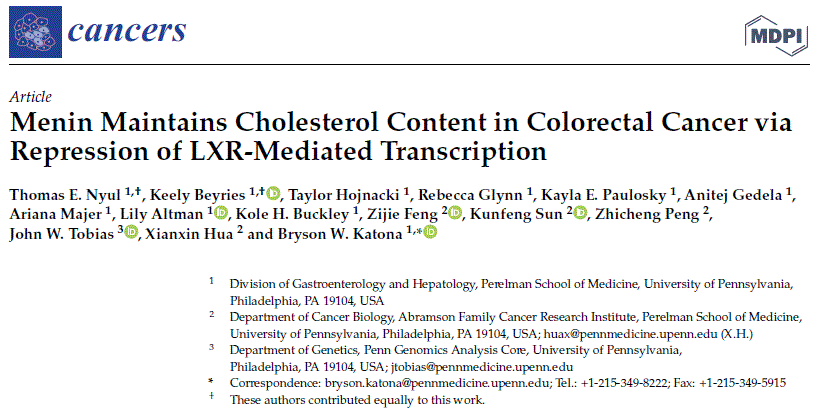
Bryson Katona and Kole Buckley had a wonderful and productive meeting with Sandra Ryeom and her group (our friends and collaborators!) at Columbia University.
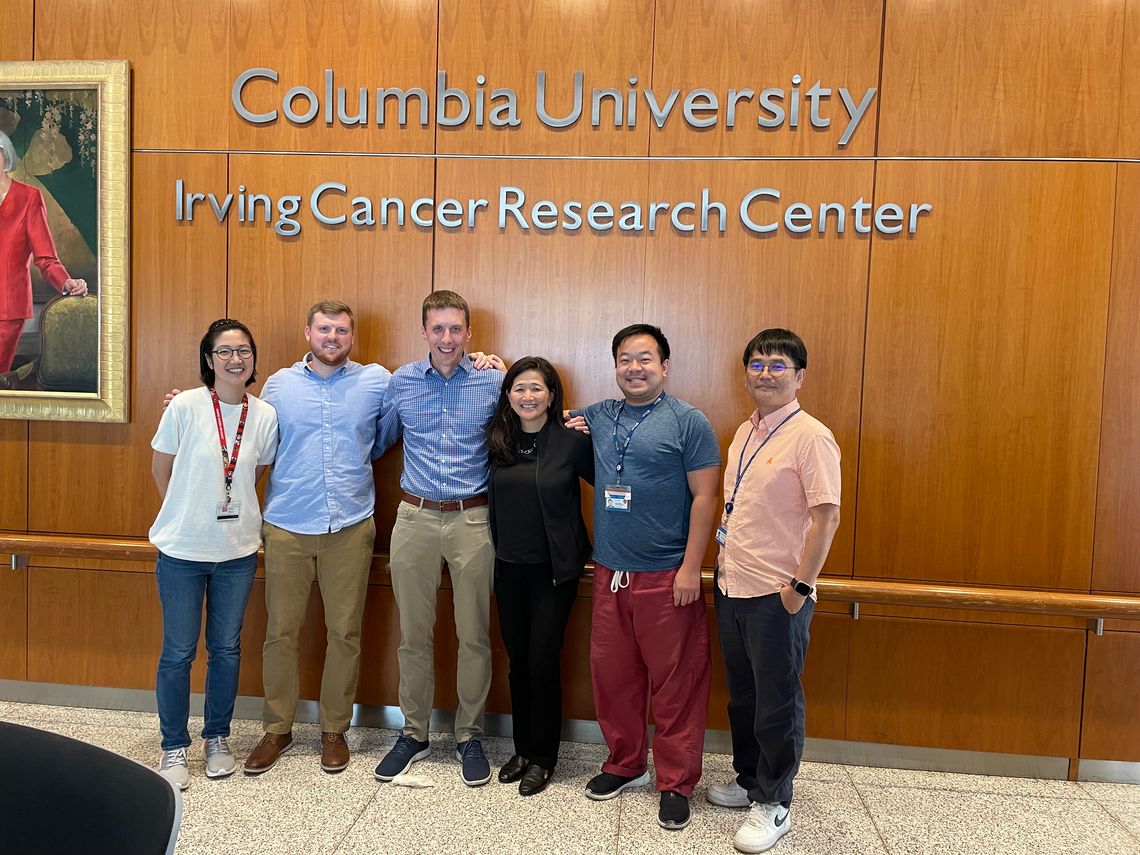
May 2023
Welcome to Ariana Majer, a PhD student in the CAMB-Cancer Biology Program, who is joining the lab to work on understanding the role of menin in hereditary colon polyposis syndromes.
Welcome also to Lily Altman, an undergraduate student at the University of Virginia, who is joining the lab for the summer.
Marya Pulaski presented her research examining the yield of gastric biopsies in Lynch syndrome at Digestive Disease Week in Chicago, IL.
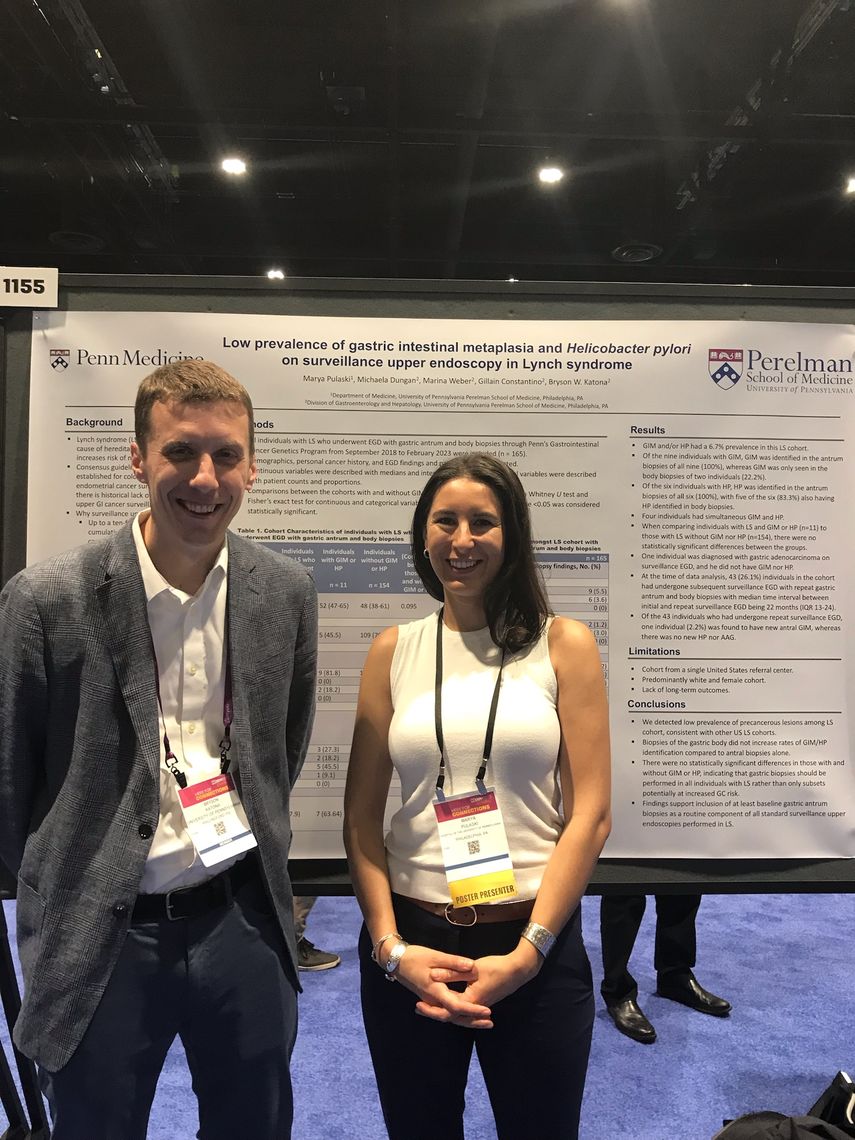
April 2023
The Katona Lab and Levy Lab celebrated completion of participant recruitment for our β-hydroxybutyrate study! Thanks to the hard work of so many in our groups who allowed us to hit this milestone less than 1 year since recruitment began.
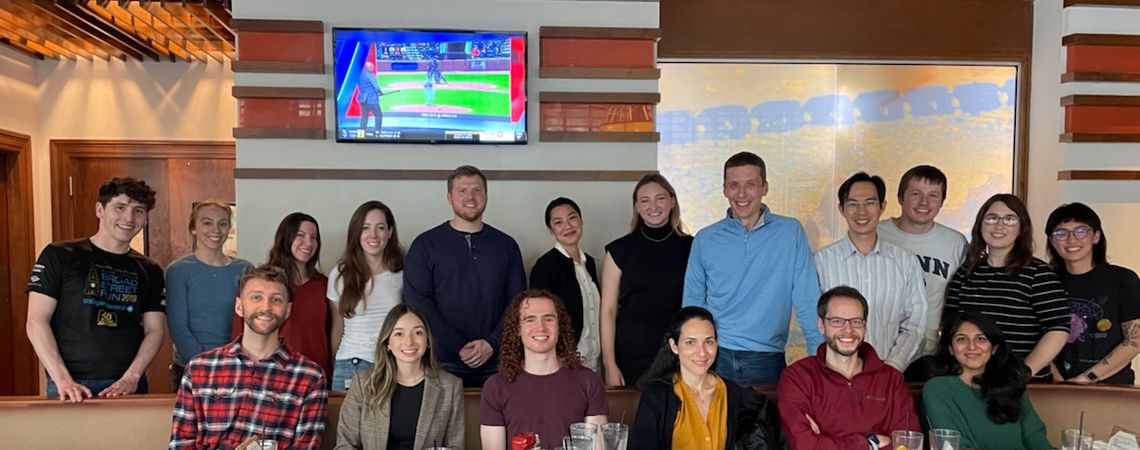
Isabel Anez Bruzual presented her Master's Thesis work at the Penn's Master's Student Research Colloquium.
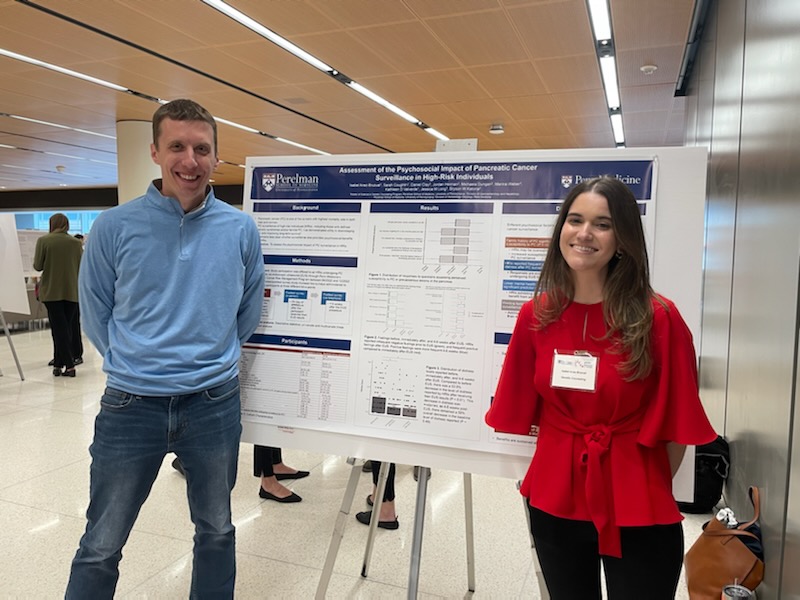
March 2023
Bryson was interviewed by Sandy Bauers the Philadelphia Inquirer about Lynch syndrome. Read the article here!
Penn had a successful 2nd Annual Lynch Syndrome Symposium on March 22nd 2023, and the Katona Group was out in full force during the event.

January 2023
Welcome to Sam Levy, a Master's in Genetic Counseling graduate student, who joined our group and will be examining patient decision-making about CDH1 testing on multigene panel testing.


